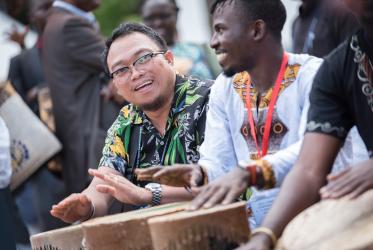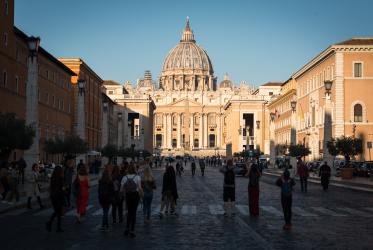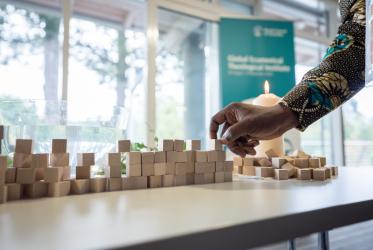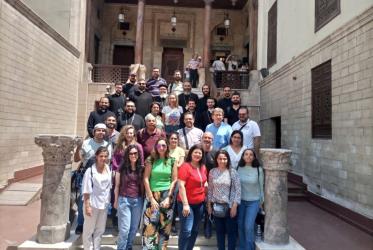Religious radicalisation is at the heart of many political discussions worldwide but is also playing a major role in intra-Christian and interreligious dialogue. Often a divisive feature in these discussions is the tendency to stereotype certain religions as having extremist expressions and actions.
How do theologians engaged in academic theological education position themselves amidst this controversy? And how can they contribute to developing avenues of understanding capable of countering religious radicalisation? How can theological educators help raise awareness for the vulnerability of all religions to the subtle intrusions of radicalisation?
These were a few of the questions discussed at an international consultation on “Theological Education in the Context of religious Radicalisation” organised by the World Council of Churches programme on Ecumenical Theological Education (ETE) from 8-10 December at the Ecumenical Institute at Bossey.
Participants included Prof. Sandra Mazzolini (Urbaniana Rome, Italy), Prof. Wojciech Szczerba (Evangelical School of Theology in Wroclaw, Poland), Rev. Dr Joseph Bosco Bangura (World Communication Ministries in Brussels, Belgium) and others. The consultation is the second of a series inaugurated by ETE programme executive Amélé Ekué in 2014 with a gathering on theological education and migration. The series was developed with the intention to deepen the conversation between representatives of mainline and evangelical, Pentecostal and independent churches on issues pertaining to theological education and ministerial formation.
The participants shared both systematic and contextual contributions on how this theme resonates within their respective professional fields. They discovered from the outset the need to differentiate the definition of radicalisation and to understand the societal and political framework in which it occurs. Dr Raymond Pfister, a Swiss-based Pentecostal theologian of French origin, mentioned the importance of rethinking the role of biblical hermeneutics and history “to move beyond an ‘us-against-them-narrative.’”
Such a broader understanding of radicalisation was also the starting point Dr Henrik Sonne Petersen of DanMission in Denmark offered in his contribution. He stressed how central it is for theological education to take account of the nexus between intra-religious and interreligious relationships in the context of radicalisation, and asked a critical question related to “what it takes to build theological education that counters radicalised attitudes by avoiding their legitimisation.”
Prof. Paul Tshihamba Mpongo, rector of the University of Independent Churches in Congo, spoke from within the experience of the churches in the violence-ridden Great Lakes region in central Africa, noting that religious radicalisation requires attentiveness from an intra-Christian perspective. He said: “By attempting to avoid radicalisation, we have fallen ourselves into the trap of fundamentalism.”
The participants agreed that the theme of the consultation deserves further exploration and an in-depth analysis to identify meaningful ways of addressing it in theological education. They considered the consultation a constructive beginning of a conversation to be continued towards this aim.
Learn more about WCC's work on Ecumenical Theological Education






